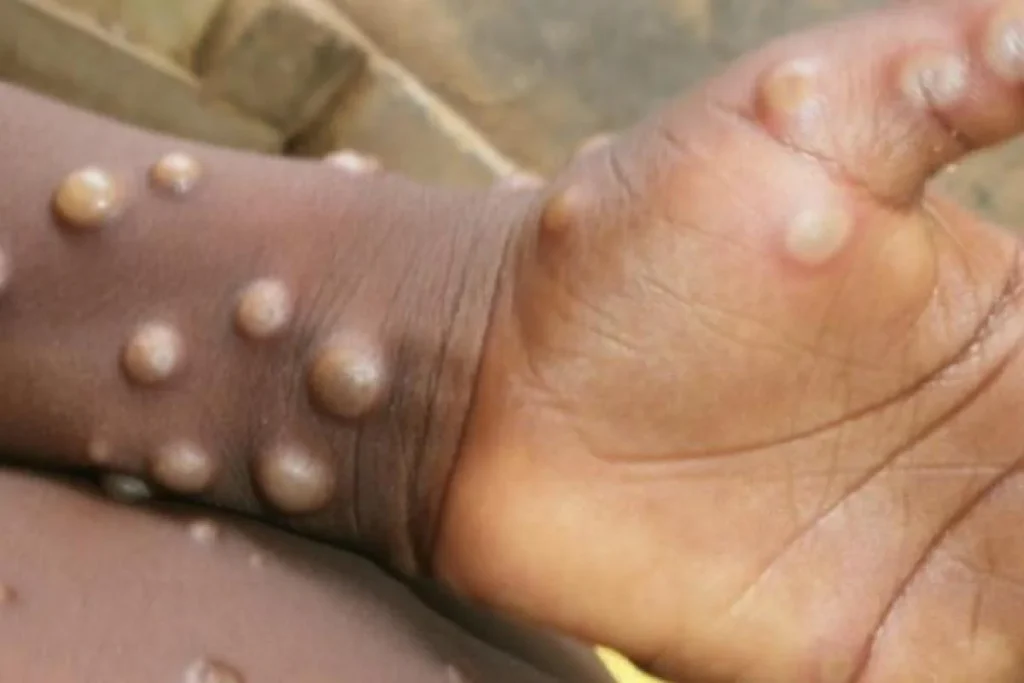
A medical laboratory scientist, Mr. Ibraheem Qoseem, has called for upgrading the capacity of laboratories for the detection of monkeypox across the country.
Qoseem made the call in an interview with journalists yesterday in Abuja.
Recall that the World Health Organisation (WHO) said that 780 laboratory-confirmed monkeypox cases had been reported to it from 27 non-endemic countries while maintaining that the global risk level was moderate.
The WHO said the 780 figures, for cases from May 13 to June 2, 2022, were probably an underestimate due to limited epidemiological and laboratory information.
“Other countries will likely identify cases and there will be a further spread of the virus,” it said.
Few hospitalisations have been reported, apart from patients being isolated.
The WHO listed the non-endemic countries reporting the most cases as Britain (207), Spain (156), Portugal (138), Canada (58) and Germany (57).
Besides Europe and North America, cases have also been reported, in single figures, in Argentina, Australia, Morocco and the United Arab Emirates.
It is said that one case of monkeypox in a non-endemic country is considered an outbreak.
“Some countries are reporting that new generations of cases are no longer appearing only among known contacts of previously confirmed cases, suggesting that chains of transmission are being missed through the undetected circulation of the virus,” the WHO said.
The expert said that while the efforts were still ongoing in the aspect of capacity building for the healthcare workers, individuals needed to stay safe and follow the safety guidelines by limiting human and animal exposure as it remains the only effective control measure against Monkeypox disease.
According to him, as of late May 2022, the news of the outbreak of the monkeypox virus hit the airwaves with casualties recorded in some countries in Europe and Africa. Nigeria, as expected, was not spared.
He said that the recent number of cases from the Nigeria Centre for Disease Control (NCDC) showed a steady rise, heralding another wave of tension as to whether the world is witnessing a build-up to another pandemic or it would pass by as a mere flash in the pan.
“Given this development, the general public should be wary of the imminent disease outbreak and report any suspicious case, especially people presenting persistent headache, sudden fever, body pain, engagement of gland in the neck and appearance of rashes on the face, palm, sole of the feet and genitals,” he advised.
He said that there was no definitive treatment for the disease.
“However, studies revealed that the vaccine used for the treatment of smallpox is 85 per cent effective against the disease.
“Unfortunately, this vaccine is limited in availability. Healthcare workers are more exposed to the disease, especially in institutions where infection prevention and control practices are breached,” he said.
The expert called on relevant agencies on the need for clinical studies of vaccines and treatments to better understand their effectiveness.
He also advised the government to look into the research on disease epidemiology and transmission.
The WHO recently said that the current risk of Monkeypox to human health and for the general public remains low, but the public health risk could become high if this virus exploits the opportunity to establish itself in non-endemic countries as a widespread human pathogen:
It said it assesses the risk at the global level as moderate considering this is the first time that many monkeypox cases and clusters are reported concurrently in non-endemic and endemic countries.
The WHO said that most reported cases so far have been presented through sexual health or other health services and have mainly involved men who have sex with men.
It said many cases were not presenting with the classical clinical picture for monkeypox: some have described having pustules appear before symptoms such as fever, and having lesions at different stages of development, both of which are atypical.
The organisation said there had been no deaths associated with outbreaks in non-endemic countries, but cases and deaths continue to be reported from endemic areas.
The world health body, however, listed the endemic countries like Cameroon, the Central African Republic, Congo-Brazzaville, the Democratic Republic of the Congo, Liberia, Nigeria, Sierra Leone, Gabon and Ivory Coast, plus Ghana where it has been identified in animals only.
It was also recalled that from the first seven of those countries, 66 deaths were reported in the first five months of 2022.
The WHO has also convened virtually more than 500 experts and over 2,000 participants to discuss the knowledge of monkeypox gaps and research priorities across the globe.

